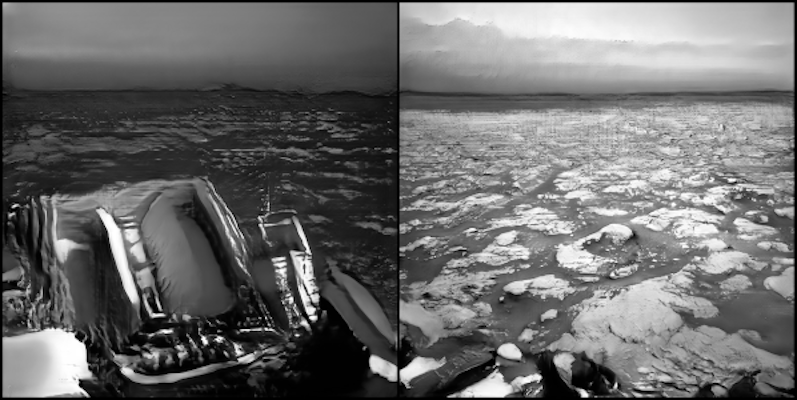Oxford researcher in World premiere of an experimental AI film 'One Sol in the Life of Curiosity'
Posted: 31st October 2023
A short experimental film about Artificial Intelligence (AI) made by an AI researcher from University of Oxford using AI has made its world premiere.
The film 'One Sol in the Life of Curiosity' was shown at the 27th edition of the International Documentary Film Festival Ji.hlava in Czech Republic, where it won a special mention for the Best Czech Experimental Documentary Film 2023.
The five-minute film tells a fictional story of the life of the Mars Rover Curiosity. Using generative models it animates the real scientific data sent from the surface of Mars, from the Curiosity mission that has been active since 2012.
Film editing and scene selection uses a custom-made code that is part of research on interacting with neural networks.
Department of Computer Science DPhil student Vít Růžička explains: 'The story explores the uncertain future of Curiosity awakening to consciousness, however wondering about existential questions, about its own role and about the absurdity of its own mission. With sensory degradation experienced in the harsh environment of Mars, it also faces its own mortality.'
Vit has been exploring the use of AI on devices deployed in communication constrained environments. He has done research in on-board deployment of AI models on satellites to increase their autonomy, for example to allow for fast alerts about disaster events.
'With a little bit of intelligence onboard, we'd be able to more closely monitor events such as wildfires or floodings.' Department of Computer Science DPhil student Vít Růžička
He said: 'With automated observation scheduling we could collect more data and increase our chances of modelling these events. Detection of some of the signals can be difficult, as there are a lot of variations in the observations and as the signal to noise ratio is quite weak.'
In one such project Vít has explored working with more powerful hyperspectral satellites on the task of detecting small methane leaks. Being able to detect these leaks early is crucial in order to reduce their negative effects towards climate change.
Vít has a keen interest in the space where arts and sciences collide. He started with analogue photography focusing on documenting the increased use of technology in our lives. Later he moved to the use of AI models for creative expression, reapplying the conceptual framework of photography. Now he uses similar AI models for his own scientific research, and also for artistic purposes.
After the festival, the film will be available to see through the East Silver distribution organised by the Institute of Documentary Film for about one month. A trailer of the film is also available.
For more information contact the author.

